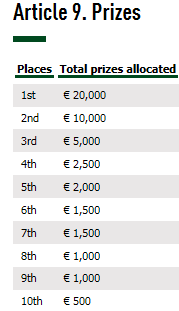
The cycling world has its own formal and informal rules. I've previously blogged about behaviour that is acceptable in cycling and not elsewhere and vice-versa. Stage 9 and 10 of this year's Giro d'Italia brought some of these rules to the fore. On stage 9 there was behaviour that could be considered predatory when a group of riders appeared to take advantage of difficulties encountered by a rival (here). Then, on stage 10, Sky's Richie Porte was penalised 2 minutes for accepting help from a member of a rival team. In this year's Vuelta a Espana, Vincenzo Nibali was disqualified after taking a tow from a team car. Nibali was not impressed by the application of the rules (here). Nibali expressed his displeasure at the behaviour of his opponents (and teammates) after he crashed. If a grand tour winner, like Nibali, is unsure about the consistent application of the rules then it can be harder for the outsider to understand.
The lines are probably clearer when it comes to allowing an opponent triumph. It is probably even clearer when money changes hands. This was brought into focus last month with the announcement of an investigation into an alleged payment for reduced competitive effort in the 2010 Liege-Bastogne-Liege (here). The allegation is that Alexander Vinokourov paid Alexandr Kolobnev a total of €100,000 to allow Vinokourov win. A payment to allow him to win a race with a first prize of €20,000 (here)! If the allegations are proved to be correct then who committed the bigger crime? The one who made the payment or the one who accepted it?
Even if the allocations are proved to be correct then there may be a question about whether or not this sort of behaviour is acceptable. The website CyclingTips clearly believes that this sort of behaviour is part of the culture and business of professional cycling (here). If we are to believe what we read then it would be harder to condemn either cyclist for their behaviour.
 RSS Feed
RSS Feed